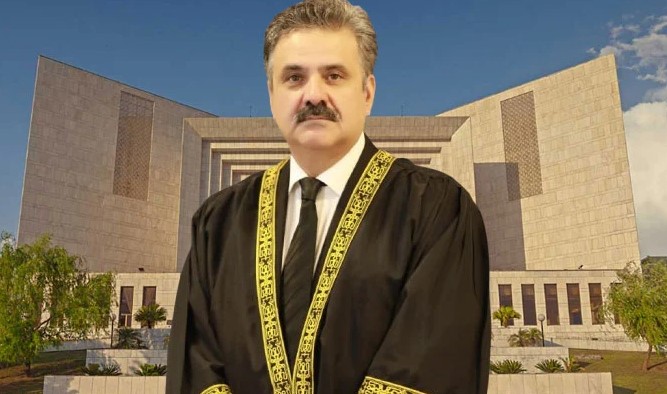QaiserMirza
Chief Minister (5k+ posts)
THE BEST DAYS IN THE WORLD
The Blessed Days of Dhul Hijjah
In what follows, we will highlight some of the Sunnah regarding these days, hoping by this to provide an incentive to make the best out of them and gain ALLAHs reward, in shaa ALLAH.
The First Ten Days of Dhul-Hijjah
"The best days in the world are the Ten days." [Ibn Hibbaan, al-Bazzaar, authenticated in Saheeh Jaami` us-Sagheer #1133]
"There are no days during which good deeds are more beloved by ALLAH than these (ten) days." [al-Bukhaaree, at-Tirmidhee and others]
The Prophet, sallallaahu `alayhi wa sallam, was then asked: "Not even Jihaad in ALLAHs way?" He replied: "Not even Jihaad in ALLAHs way; except for a person who went out (for Jihaad) with his self and wealth and came back with none (i.e. lost all for ALLAH)." [at-Tirmidhee, authenticated in al-Albaanees Irwaa ul-Ghaleel, #953]
All good deeds can be done during these days and the early generations of Muslims used to exert themselves excessively in worshipping ALLAH. In particular, fasting and dhikr (mentioning and remembering ALLAH) are to be done in plenty on these days.
Dhikr
Ibn `Abbaas commented on the verse <<and to mention ALLAHs name undefined on Known days>> [22:28] by saying: these known days are the ten days [of Dhul Hijjah]. [Tafseer ibn Katheer]
Fasting
One of the wives of the Prophet, sallallaahu `alayhi wa sallam, said: "ALLAHs Messenger used to fast the (first) nine days of Dhul Hijjah, the day of `Ashooraa, and three days of each month. [Saheeh Sunan Abee Daawood #2129]
Fasting on all these days, however, is not a waajib (compulsory), nor is it a constant sunnah that the Messenger, sallallaahu `alayhi wa sallam, never dropped. `Aaishah said: "I never saw the Messenger, sallallaahu `alayhi wa sallam, fast the ten days." undefined
The Day of `Arafah - The Best Day of the Whole Year
The day of `Arafah is the day when the pilgrims stand in worship on the Mountain of `Arafah.
"Fasting the day of `Arafah (10th Dhul Hijjah) expiates the undefined sins of two years: a past one and a coming one. And fasting the day of `Aashooraa (10th Muharram) expiates the sins of the past year." undefined
"There is no day on which ALLAH `azza wa jall frees people from the Fire as He does on the day of `Arafah. He comes close (to those standing on `Arafah) and then revels before His angels, saying: "What are these people seeking?" undefined
The Day of al-`Ad-haa
The tenth of Dhul-Hijjah is `Eid ul- Ad-haa or the day of an-Nahr (slaughtering). It marks the conclusion of the major rites of Hajj, and commemorates ALLAHs bounty on His Messenger Ibraaheem, when He gave him a ram to sacrifice as ransom for his son Ismaa`eel, `alayhimassalaam.
Hadith:"The day of al-Fitr [i.e. `Eed ul-Fitr], the day of an-Nahr, and the days of Tashreeq are `Eid days for us Muslims. They are days of eating and drinking." [Ahmad, an-Nasaaee, Saheeh ul-Jaami` #8192]
The Three Days Following `Eid ul-`Ad-haa
On these days, the pilgrims complete their rites, Muslims continue with their `Eid celebrations, and are prohibited to fast. "The days of tashreeq are days of eating, drinking and mentioning ALLAH." undefined
The Sacrifice
ALLAH `azza wa jall mentioned the sacrifice together with the first and foremost worship in Islaam: prayer. This is a clear indication of its great importance. Thus He ordered His Messenger, sallallaahu `alayhi wa sallam, to slaughter sacrifices by saying: <<Pray unto your Lord and slaughter [your sacrifice]" [109:2]
Ruling
The general concensus of the Muslim scholars is that the sacrifice is an important sunnah, and a worship called for in the Law of ALLAH. However, they differ as to whether it is nafl (voluntary) or waajib (mandatory) for those who can afford it. Some scholars have explained the different ahaadeeth on the subject by stating that the sacrifice is obligatory on those who can afford it and not obligatory on those who cannot.
Abu Hurayrah reported that the Messenger, sallallaahu `alayhi wa sallam, said: "He who has the capacity, and does not sacrifice, may not approach our musallaa (place of prayer - on the `Eid)." [Ibn Maajah, Ahmad and others, authenticated by Al-Albaanee in Saheeh Sunan Ibn Maajah, #2533]
Regarding this hadeeth, Imaam ash-Shaukaanee said: "Prohibiting the one who could afford to sacrifice, but did not do so, from approaching the musallaa indicates that he must have left off a waajib, as it becomes useless to offer the salaah without this waajib undefined." [Nayl ul-Awtaar]
Avoid Cutting Hair or Nails
The one who plans to sacrifice (normally, the head of household) is prohibited to cut his hair or nails from the first Dhul Hijjah until he offers the sacrifice. "For the one who has a slaughtering to perform (on `Eid then, once the hilaal (crescent) of Dhul Hijjah is observed, let him not cut any of his hair or nails until he sacrifices." And in another narration: "Once the ten days start, for those of you who have the intention to sacrifice, let them not cut any of their hair or nails (until they sacrifice)." undefined This prohibition is the opinion of the majority of the scholars of the early generations of Muslims.
Allahu A`lam
Based on "Al-A`yaad fil Islaam" [by Muhammad. al-Jibaly]





























